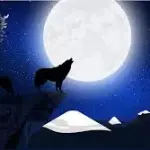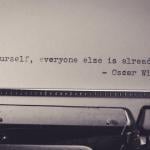My father died a few weeks ago. It came as quite a shock. He was 82 but still very active and not sick at all. Sure, he had had a heart attack over 30 years ago, but had no problems since and was careful with his diet and exercise and was still actively pursuing his interests in photography.
 He had shown his work in a gallery the weekend before he died. We spoke two days before he died about his plans to come out and teach my son how to take and develop his own pinhole photographs. And suddenly he was just … dead.
He had shown his work in a gallery the weekend before he died. We spoke two days before he died about his plans to come out and teach my son how to take and develop his own pinhole photographs. And suddenly he was just … dead.
In some ways, I had been expecting a call about dad dying for 30 years. I’ve been worried about him ever since his heart attack. I was in Hawaii at the time and wasn’t able to come home to see him. When my sister called to tell me dad was dead, it felt like I was reliving that moment 30 plus years ago. I felt hopeless and still do.
The thing about grief is that it takes you by surprise. In the days after my dad’s death, I was looking for quotes for the celebrant to use. I found this one.
“Whenever anybody whom we love dies, we discover that although death is commonplace it is terribly original. We may have thought about it all our lives, but if it comes close to us, it is quite a new, strange thing to us, for which we are entirely unprepared. It may, perhaps, not be the bare loss so much as the strength of the bond which is broken that is the surprise, and we are debtors in a way to death for revealing something in us which ordinary life disguises.” – William Hale White (from his book Clara Hopgood)
My dad’s death surprised me, both in its suddenness, but also in my response. Despite my knowledge that death is final, I still resist it. It still feels surreal. I find myself, as we deal with his estate and the probate process thinking, I should call dad and find out where he put that paper or that camera. Ummmm, yeah. If he was still around we wouldn’t even be looking for it. My mom says that she still thinks about calling her to ask her mother for advice and she died over 40 years ago now. The habits you form through a lifetime of interdependence are habits that are hard to break.
The worst day, so far, was the day I was thinking about my father’s cremation, which hadn’t happened yet due to a delay in getting the death certificate signed by his doctor. I started thinking about the death of my daughter and how I felt during her cremation and how my dad was there to help my husband and I grieve. I started sobbing in a way I hadn’t yet. Sure, I had cried, but not like this. I realized that the pain and grief was arising in me this way and this strongly because – once his body is gone, that’s it. He’s not coming back! It will be impossible for him to come back. I hadn’t realized I’d been hoping for the impossible, that his death wasn’t really real, until that moment.
I’m really proud of my family and how we are collectively handling our grief. We are all realists and naturalists and our feeling about grief is – it’s just something everyone experiences at some point and there is no need to get all worked up about it. Grief is bad enough. Just accept it and allow yourself to experience it and think about whatever it is you think about while grieving. It’s normal and natural to grieve when someone you loved or had in your life dies.
 The main thing I’ve learned and actually relearned about grief in the last few weeks is just how communal an experience it is. I needed to be around my family who was experiencing the same grief as me. I needed to see them in person. Grief is not something I could do on my own or at a distance. Even though I have the support of my husband and son, I needed to physically be around people experiencing the loss in a similar and intimate way as I was.
The main thing I’ve learned and actually relearned about grief in the last few weeks is just how communal an experience it is. I needed to be around my family who was experiencing the same grief as me. I needed to see them in person. Grief is not something I could do on my own or at a distance. Even though I have the support of my husband and son, I needed to physically be around people experiencing the loss in a similar and intimate way as I was.
But it wasn’t just immediate family that was grieving with me. My friends and extended friends all shared memories with me. And those memories weren’t always about my dad. Often, it was about the loss of their parent. My grief brought up their grief and they needed to share that with me. This sharing and mingling of past and present grief helped me recognize that while my grief is unique, I’m not alone in the experience. Grief is part of the human condition. We all experience it at some point.
Despite feeling lost inside my own head, I’m not alone. People all over the world experience grief all the time and still manage to keep on living. That’s a comforting thought. We are all in this struggle called life together and even if someone important dies and leaves you alone, you are not alone.
I’ll leave you with this quote from Carl Sagan: “In all our searching, the only thing we’ve found that makes the emptiness bearable, is each other.”
Written by Jennifer Hancock
Subscribe to The Spiritual Naturalist Society
Learn about Membership in the Spiritual Naturalist Society
__________
The Spiritual Naturalist Society works to spread awareness of spiritual naturalism as a way of life, develop its thought and practice, and help bring together like-minded practitioners in fellowship.












